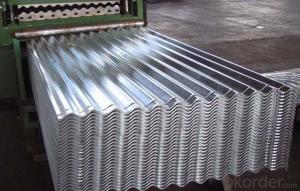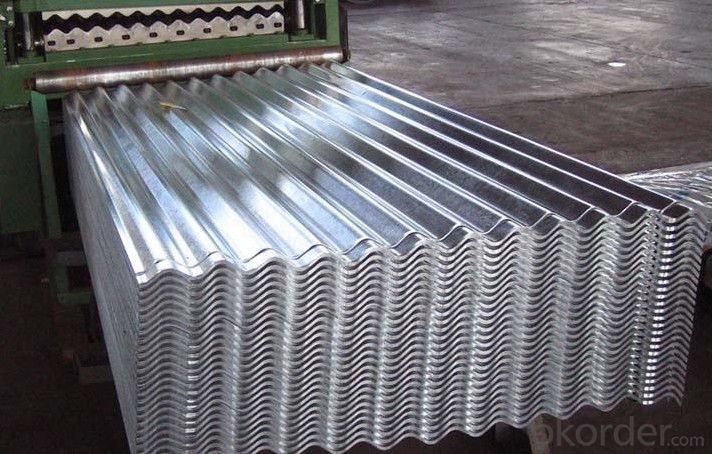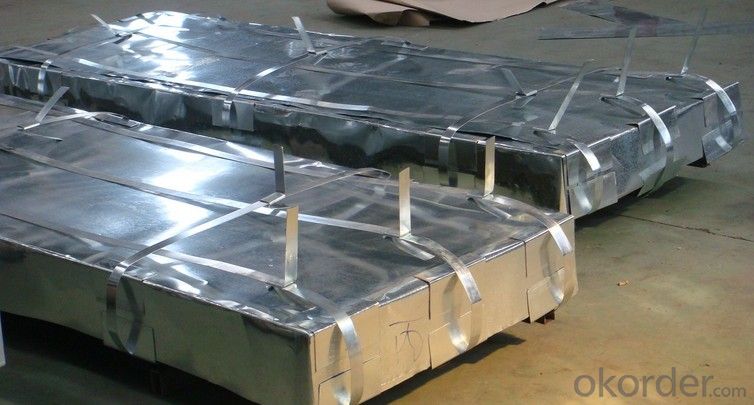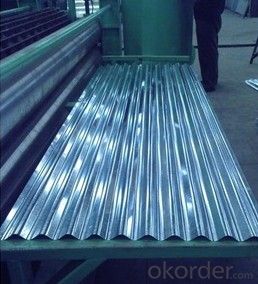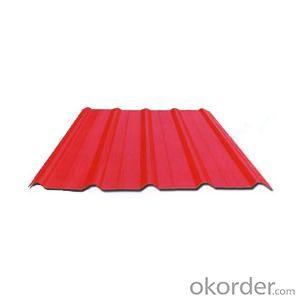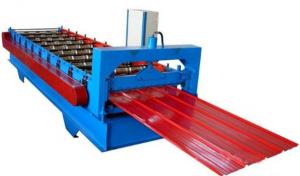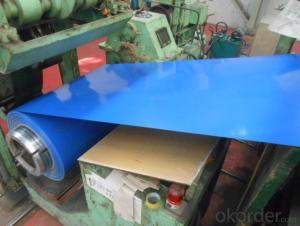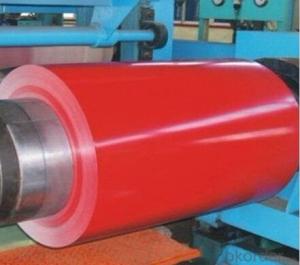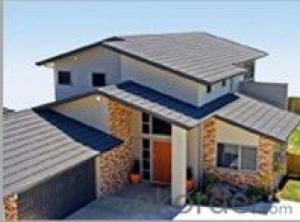Prepainted galvanized corrugated steel sheets for roofing
- Loading Port:
- Tianjin
- Payment Terms:
- TT OR LC
- Min Order Qty:
- 1 m.t.
- Supply Capability:
- 200000 m.t./month
OKorder Service Pledge
OKorder Financial Service
You Might Also Like
1) AVAILABLE DESIGNATION OF (Prepainted galvanized steel coils) printed PPGI coils
Quality Q/BQB 440-2003 JIS G3312-1994 EN 10326-2004 ASTM A653-02a
EN 10327-2004 (BASE PLATE)
(BASE PLATE)
Commercial Steel TDC51D CGCC DX51D+Z/AZ CS Type A/B/C
Forming Steel (TSt01,TSt02,TSt03) CGCD1 FS Type A, Type B
Drawing TDC52D /TDC53D - DX52D+Z/AZ DDS TYPE A/C
Steel DX53D+Z/AZ
Structural TS280GD(TStE28) CGC400 S280D+Z/AZ SS275
Steel TS350GD(TStE34) CGC440 S350D+Z/AZ SS340 Class1
2) OUR SPECIFICATION OF (Prepainted galvanized steel coils) printed PPGI coils
Available Size:
Manufacturer Thickness Width Length of plate Inner diameter of coil
JIANGSU HUIYE STEEL SHEET CO.,LTD 0.2-1.2mm 800/914/1000/1200/1219/1250mm 1000-6000mm 508mm/610mm
Coated Mass OF (Prepainted galvanized steel coils) printed PPGI coils:
Base plate Available Coated Mass(g/m^2)
Galvanized Steel 80, 100, 120, 160, 180
Galvalume Steel 50, 70, 150
Available Painting OF (Prepainted galvanized steel coils) printed PPGI coils:
Category of Painting Item Code
Polyester PE
High-durability polyester HDP
Silicon modified polyesters SMP
Polyvinylidene fluoride PVDF
Easy-Cleaning —
Painting Thickness Top side: 20+5microns;
Bottom side: 5~7microns.
Color System Produce according to RAL Color System or as per buyer’s color sample.
Painting structure Top surface Bottom surface
Primer coating No coating 1/0
Primer coating Primer coating 1/1
Primer coating + Finish coating No coating 2/0
Primer coating + Finish coating Primer coating or single back coating 2/1
Primer coating + Finish coating Primer coating + Finish back coating 2/2
- Q: What is the thickness range for steel sheets?
- The thickness range for steel sheets can vary depending on the type of steel and its intended use, but it typically ranges from 0.4 millimeters to 6 millimeters.
- Q: What are the different surface treatments available for steel sheets to enhance their appearance?
- There are several surface treatments available for steel sheets to enhance their appearance. Some common methods include polishing, brushing, and painting. Polishing involves using abrasive materials to create a smooth and shiny surface. Brushing uses wire brushes to create a textured and matte finish. Painting involves applying a layer of paint to add color and protection to the steel sheet. Additionally, there are also options like galvanizing, which involves coating the steel with a layer of zinc to prevent corrosion and give it a metallic look.
- Q: What are the different methods of surface preparation for steel sheets?
- Some of the different methods of surface preparation for steel sheets include sandblasting, chemical cleaning, mechanical cleaning, and power tool cleaning.
- Q: What are the common thicknesses of steel sheets?
- The common thicknesses of steel sheets range from 0.5mm to 6mm, with some variations depending on the specific application and industry requirements.
- Q: What are the color options for steel sheets?
- The color options for steel sheets vary depending on the specific type of coating or finish applied. Common color options include white, black, gray, blue, green, red, and metallic shades such as silver and gold. Additionally, custom colors can be achieved through processes like powder coating or painting.
- Q: What is the average lead time for ordering steel sheets?
- The average lead time for ordering steel sheets varies depending on the supplier and the specific circumstances, but it typically ranges from 1 to 4 weeks.
- Q: Are steel sheets resistant to water or moisture damage?
- Yes, steel sheets are generally resistant to water or moisture damage. Steel is inherently corrosion-resistant and can withstand exposure to water without rusting or deteriorating. However, certain conditions such as prolonged exposure to saltwater or acidic environments may still cause corrosion over time. It is important to properly maintain and protect steel sheets to ensure their long-term resistance to water damage.
- Q: Can steel sheets withstand extreme weather conditions?
- Yes, steel sheets are designed to withstand extreme weather conditions due to their inherent strength, durability, and resistance to corrosion. They can withstand heavy rain, snow, high winds, and even hailstorms without getting damaged. Additionally, steel sheets are also fire-resistant, making them a reliable choice for various applications in extreme weather environments.
- Q: Can steel sheets be used for railway applications?
- Yes, steel sheets can be used for railway applications. Steel sheets are commonly used in the construction of railway tracks, bridges, and other infrastructure due to their high strength, durability, and resistance to wear and tear. They provide a stable and reliable foundation for railway systems, ensuring safe and efficient transportation.
- Q: Can steel sheets be used for outdoor applications?
- Yes, steel sheets can be used for outdoor applications. Steel is a durable and weather-resistant material that can withstand harsh outdoor conditions such as rain, snow, and UV exposure. It is commonly used for outdoor structures, roofing, siding, and fences due to its strength and longevity.
Send your message to us
Prepainted galvanized corrugated steel sheets for roofing
- Loading Port:
- Tianjin
- Payment Terms:
- TT OR LC
- Min Order Qty:
- 1 m.t.
- Supply Capability:
- 200000 m.t./month
OKorder Service Pledge
OKorder Financial Service
Similar products
Hot products
Hot Searches
Related keywords
